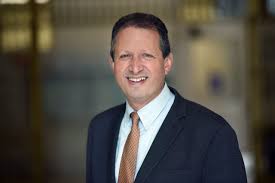September 25, 2015
By Steven Wishnia
Between technology and policy, New York City traffic enforcement agents’ jobs have changed dramatically over the last decade. They now do far more than write parking tickets and direct traffic, the in-title duties for Level I and II agents.
“We’re no longer meter maids,” says Tammy Meadows, traffic vice-president of Communications Workers of America Local 1182, which represents traffic agents at those two levels. “We’re doing accident reports, stolen vehicles. We’re responding to riots.”
“We’re no longer meter maids,” says Tammy Meadows, traffic vice-president of Communications Workers of America Local 1182, which represents traffic agents at those two levels. “We’re doing accident reports, stolen vehicles. We’re responding to riots.”
Technologically, traffic enforcement agents no longer write tickets by hand. They enter the necessary information and print out summonses on a hand-held computer device. Politically, they’re doing “a lot of extra jobs,” says Local 1182 president Syed Rahim. Traffic agents have issued summonses for moving violations, such as “blocking the box” at intersections, for the last five or six years, he says. They now write up accident reports, under a city pilot program that started last year. And they’ve also been given the task of looking for stolen vehicles: When they issue a violation, they scan the vehicle’s license plates with their handheld device. If the plates match those of a vehicle that has been reported stolen, the Police Department computer sends back an alert.
That system has enabled traffic agents to help recover almost 5,000 stolen vehicles in the last four years, says Meadows. It’s also one of the more hazardous parts of the job. If a vehicle comes up as stolen, agents are supposed to retreat and call in a report from a safe distance, then wait for police to arrive. “Sometimes, my guys are standing by when the guy who stole it returns,” says Joseph Puleo, president of AFSCME Local 983, which represents Level III and Level IV traffic agents.
In early September, traffic agent Azizur Rahman—a Local 1182 at-large delegate—was issuing a ticket to a car illegally parked in Harlem when he received an alert that it was stolen. When the driver came back, Rahman flagged down a passing police car. The driver was arrested—and police found he had a gravity knife and two loaded handguns, a Colt .45 semi-automatic and a Taurus .38 revolver.
“We’re actually preventing crime,” says Meadows. The additional tasks started slowly, she adds, but have evolved more rapidly over the past 10 years, since traffic agents were called on deck for the emergencies of the 9/11 attacks and the blackout of 2003.
Level III agents drive city tow trucks, and Level IV agents help disabled vehicles on highways, inspect trucks to see they’re not overloaded, and check construction sites to ensure they’re not illegally blocking traffic, which carries fines of $5,000 to $10,000. But “we do so much more we’re not compensated for,” says Puleo.
Tow-truck operators are now responsible for relocating vehicles to clear the way for visiting dignitaries like Pope Francis and President Obama, and moving parked cars so emergency vehicles can get access during disasters like the gas explosion that destroyed three buildings in the East Village last March. When protesters against police brutality blocked traffic on city bridges last fall, “we were on the front lines,” Puleo says—but without the riot gear police on duty had.
On the other hand, he also objects to the city having taken away some of traffic agents’ traditional tasks. Regular police often do towing and truck weights-and-measures inspection. Why should a police officer making $93,000 a year do those jobs, Puleo asks, while “my guys get $41,000”?
Former mayor Michael Bloomberg’s administration also ended a program in which traffic agents cruised the city’s highways and bridges looking for disabled vehicles, offering the drivers gas, help fixing a flat tire, or a push to the nearest exit. The program was federally subsidized, so the aid was free, and drivers now have to pay a private tow-truck operator. Its elimination particularly rankles Puleo. Traffic agents “were so hated” for writing tickets, he says, and “this was our way of giving back to the community.”
The extra work has created resentment among traffic agents, who feel that they’ve been taking on the risks and responsibilities of police officers without receiving the pay or respect. During emergencies like snowstorms and hurricanes, they’re deemed “essential personnel” and not allowed to call in sick or take the days off, says Tammy Meadows. During the police-brutality protests last year, a breakaway group smashed the windows of a traffic-enforcement RMP vehicle while the agent was still inside, she adds. About 10 years ago, Level II agent Terrell Lee lost a leg when he was hit by a car while directing traffic at an intersection, and in 2013, Kalyanarat Ranasinghe, a 71-year-old agent who’d been an engineer in his native Sri Lanka, was killed by a truck pulling out of a parking space while he was writing parking tickets in Midtown.
“It’s dangerous,” she says. “How can you treat us as civilians and not uniforms? You can’t have it both ways.”
“The bottom line is we are doing a lot of additional jobs,” says Syed Rahim. “That’s why I say we are underpaid. The city doesn’t treat us as a uniformed force. But they give us the jobs of uniformed forces, like the police.”



